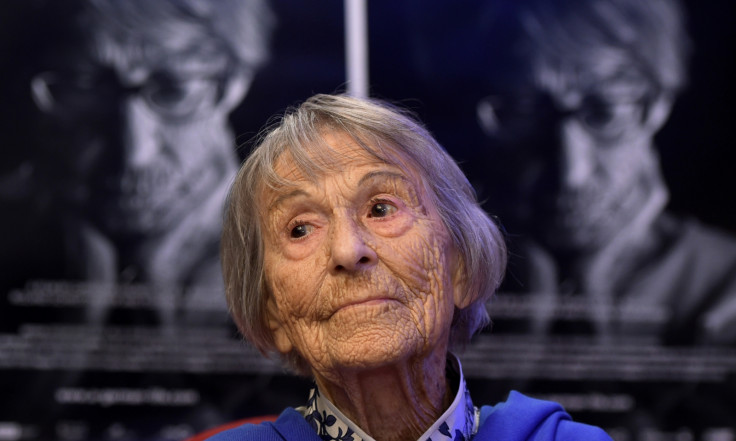Nazi propaganda minister Joseph Goebbels' secretary dies aged 106
In the documentary, A German Life, Brunhilde Pomsel claimed she knew nothing of atrocities committed by the Nazis.

Brunhilde Pomsel, an ex-secretary to Nazi propaganda minister Joseph Goebbels died on 27 January at her home in Munich at the age of 106. She was reportedly one of the last remaining people to know the members of Nazi leadership in person.
The news was confirmed by Roland Schrotthofer and Christian Krones, directors of the documentary, "A German Life", which featured hours of interviews with Pomsel when she was 103 years old.
In the documentary, she talked about the years she worked for Joseph Goebbels, the Third Reich's Minister of Propaganda and was in charge of spreading Hitler's ideology to newspapers and TV broadcasts. She worked with him for three years, almost until his death.
"I will never forgive Goebbels for what he did to the world or for the fact that he murdered his innocent children," she said. She also stated that she was only a secretary and knew nothing of the atrocities committed by the Nazis during the Holocaust and felt no guilt.
"I wouldn't see myself as being guilty. Unless you end up blaming the entire German population for ultimately enabling that government to take control. That was all of us. Including me."
"The people who today say they would have done more for those poor, persecuted Jews... I really believe that they sincerely mean it," she said. "But they wouldn't have done it either."
Pomsel, who was born in January 1911, worked for a Jewish insurance broker in her late teenage years and later worked with a right-wing writer. She joined the Nazi party in 1933 to take a job at the German government broadcasting corporation.
After the Second World War, she was captured by the Soviet troops and reportedly spent five years in various detention camps. In 1950, she rejoined German broadcasting and worked there for the next 20 years.
She spent much of her life after the Second World War in obscurity until a German newspaper published her interview in 2011.
© Copyright IBTimes 2024. All rights reserved.






